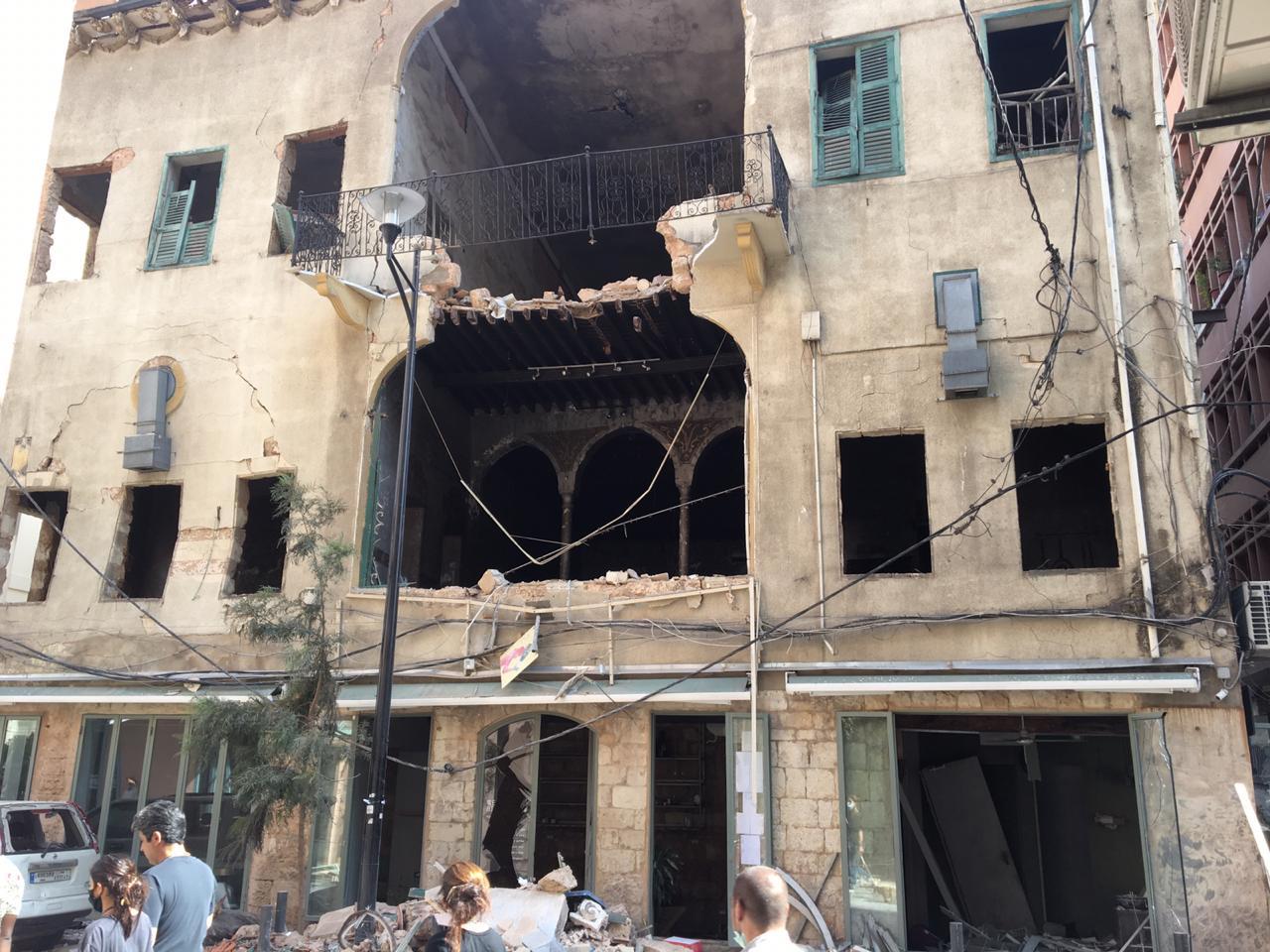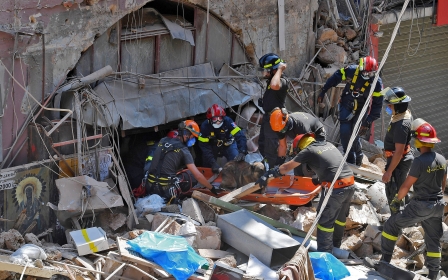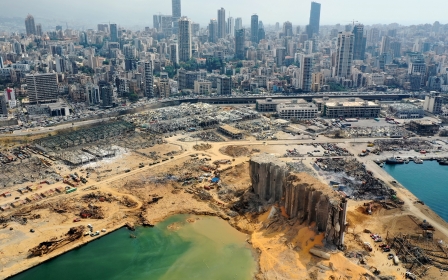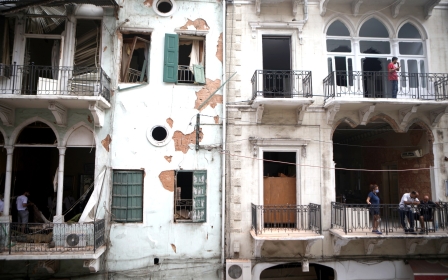Beirut explosion: Tear gas, rubber bullets fired as thousands protest in streets of Beirut
Security forces fired tear gas and rubber bullets at demonstrators as they took to the streets of Beirut on Saturday in a display of fury at the country's political class, whose corruption and negligence they hold culpable for an explosion which devastated half the city on Tuesday.
Thousands of people lined the neighbourhoods of the city as the death toll from Tuesday's explosion, thought to have been caused by the ignition of more than 2,700 tonnes of ammonium nitrate left in the city port, reached more than 150 dead.
Clashes took place between protesters and security forces near Martyrs' Square in the centre of the city, where activists had earlier in the day erected a mock gallows for Lebanon's top politicians.
In Achrafieh, not far from Martyrs' Square, a group of protesters stormed the foreign ministry, occupying the building.
New MEE newsletter: Jerusalem Dispatch
Sign up to get the latest insights and analysis on Israel-Palestine, alongside Turkey Unpacked and other MEE newsletters
Demonstrators set off from the Mar Mikhael neighbourhood, one of the districts torn to shreds by Tuesday's explosion.
Dozens of tear gas cannisters were fired against protesters attempting to reach the parliament building, forcing them to retreat. Some attempted to scale barriers set up around the parliament.
A number of protesters were taken away in ambulances after being injured.
According to the International Red Cross, 238 people were wounded, with 63 taken to hospital and 175 treated on site.
The numbers of people were reminiscent of the thousands who took to Lebanon's streets last year in protest against the country's political establishment, in what has come to be locally known as the October Revolution.
'The people demand the fall of the regime'
With the anger over Tuesday's disaster still running hot, protesters chanted "hang the nooses" and called for the execution of various political leaders.
Others chanted "the people demand the fall of the regime," echoing the popular anti-government slogan used across the Middle East in recent years. Some chanted "the people demand a new October".
One young activist, who did not wanted to be named, said he had come to Beirut from the south of Lebanon.
"There is no hope with the current system," he told Middle East Eye, as he took a moment to recuperate after running from a cloud of tear gas.
"There is no future for us anymore, once we finish college, once we finish school, there is no future for us."
Ghassan Mougharbel, an activist with the grassroots Li Haqqi movement, told MEE that there needed to be a total overhaul.
"They say it's only about corruption, but it's about an entire political, social and economic system," he said.
'They say it's only about corruption but it's about an entire political, social, and economic system'
- Ghassan Mougharbel, activist
He said that he had been at his home in central Beirut during the blast and had to save his father as the glass was shattering around him.
He noted that this was reversal of earlier years when his father had to protect him from the all too frequent violence in the country.
"No change will come about unless it is brought down and we build something new," he said.
Lebanon's health ministry said Saturday could be the last day anybody buried under rubble had any chance of being found alive.
More than 60 people are still missing.
International governments and agencies have been making pledges to help with reconstruction and investigations into the causes of the blast.
Middle East Eye delivers independent and unrivalled coverage and analysis of the Middle East, North Africa and beyond. To learn more about republishing this content and the associated fees, please fill out this form. More about MEE can be found here.





